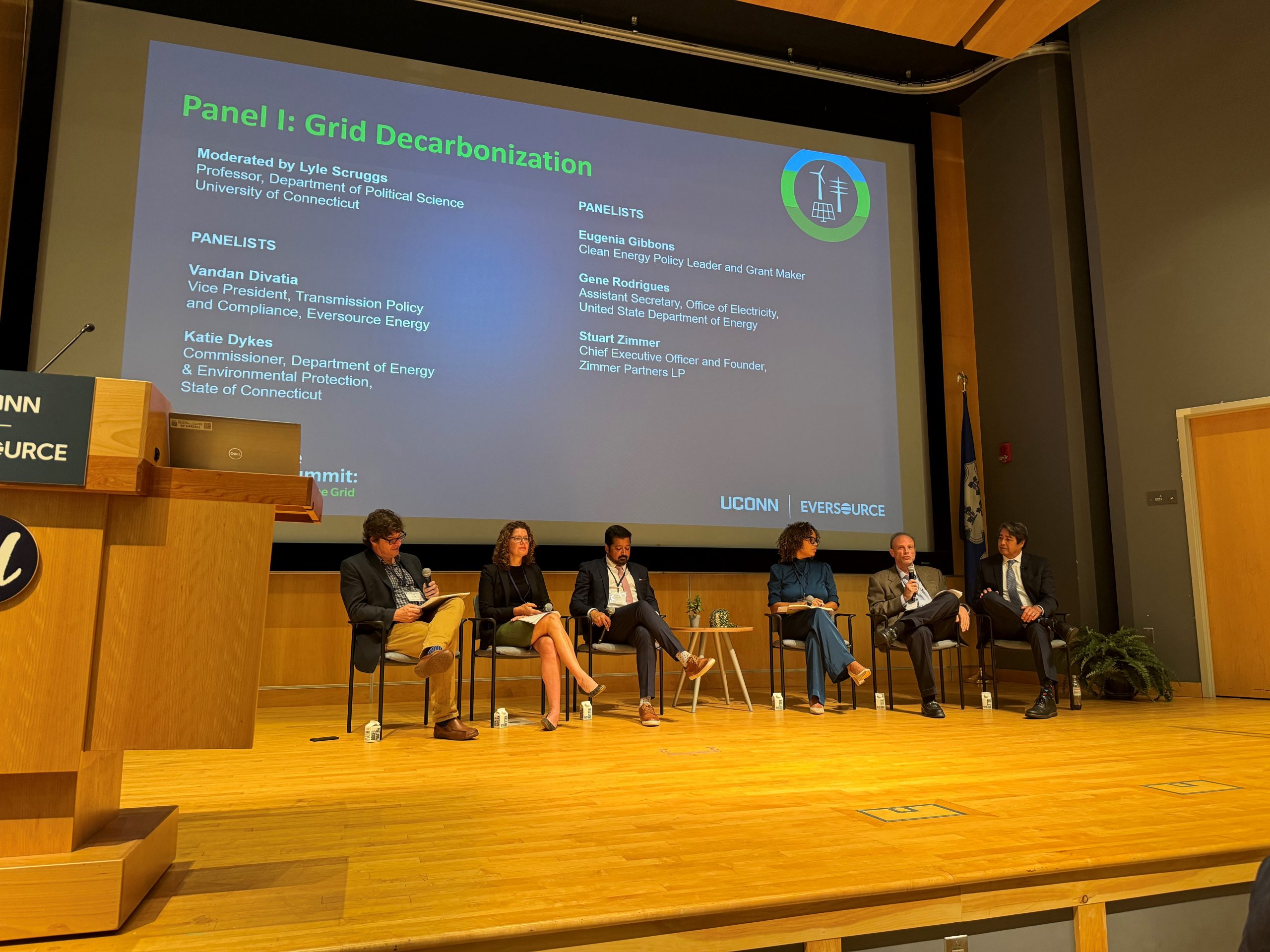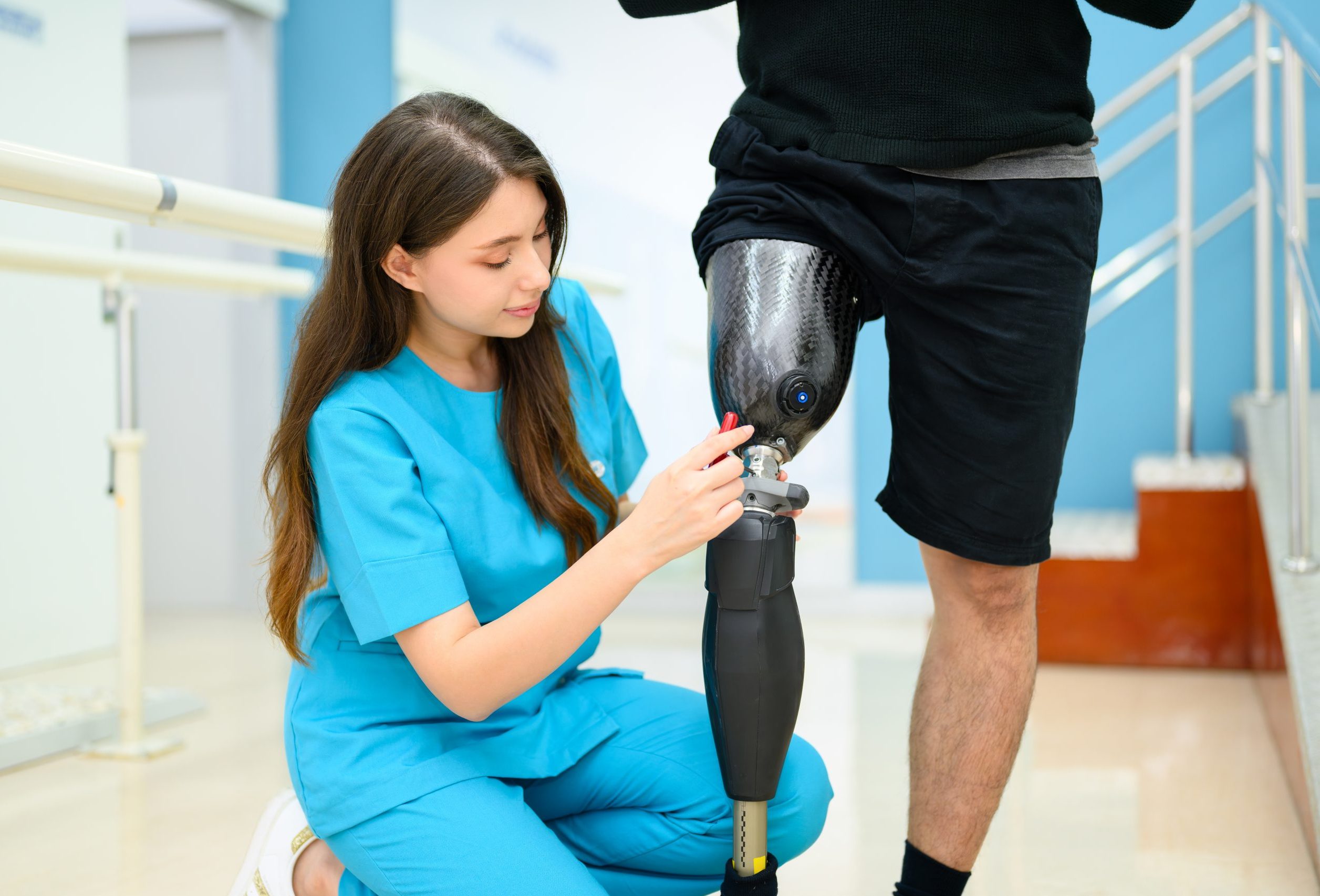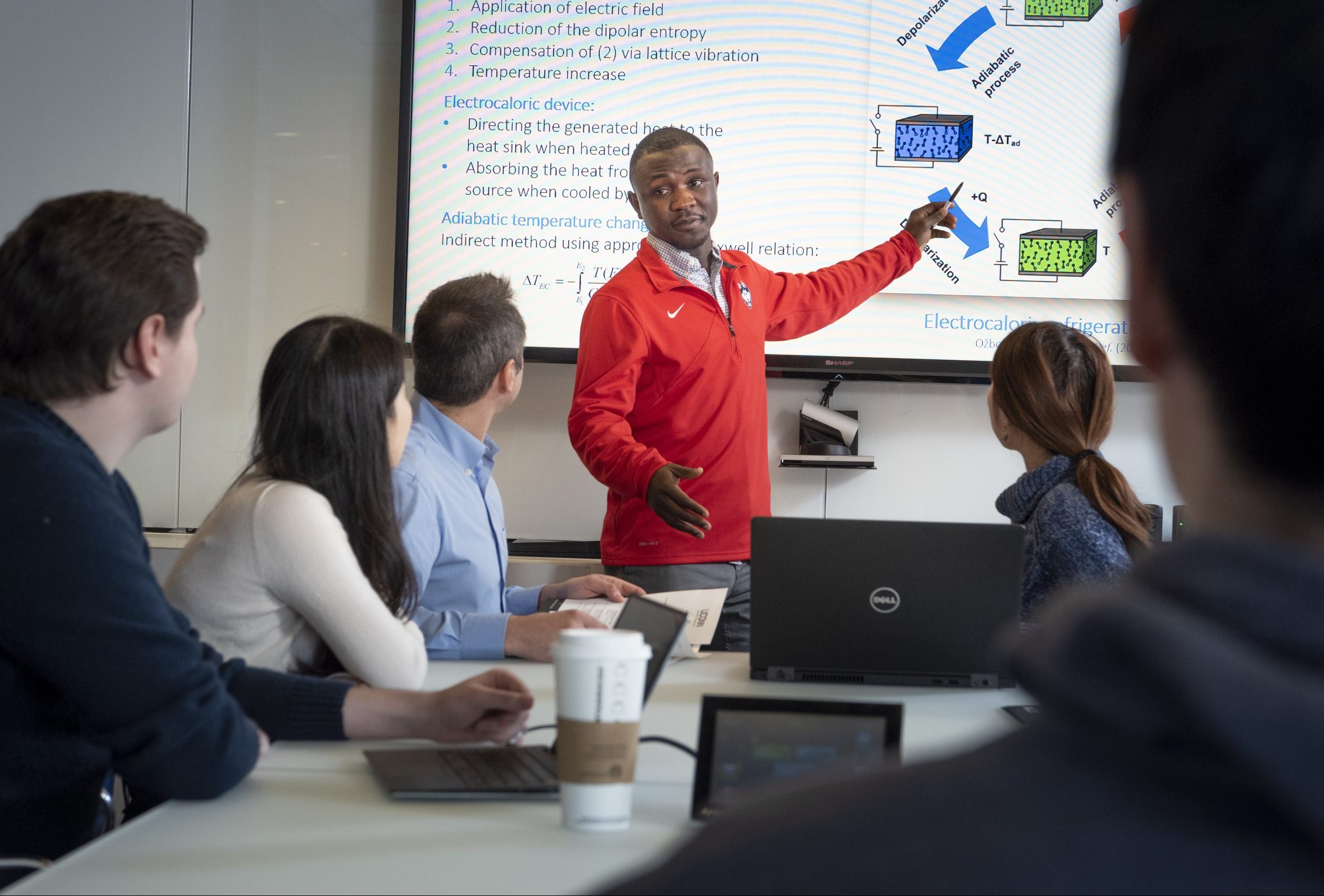Home – News
Diego Cerrai Named Interim Director of UConn’s Eversource Energy Center
Junbo Zhao from UConn College of Engineering Wins NSF CAREER Award
WISER Awarded Eight UConn Projects to Advance Weather Innovation and Energy Resilience
Professors Creating Computing Models to Increase Public Trust During Elections
Center for Voting Technology Conducts Comprehensive Assessment of New Connecticut Voting Machines
Clean Energy Summit 2024
 On Monday, September 23, 2024, UConn hosted the Sustainable Clean Energy Summit: Decarbonizing Society and the Grid in collaboration with Eversource. The event brought together over 300 UConn students, faculty, and attendees from state government, industry, and various organizations to discuss the future of sustainable energy.
On Monday, September 23, 2024, UConn hosted the Sustainable Clean Energy Summit: Decarbonizing Society and the Grid in collaboration with Eversource. The event brought together over 300 UConn students, faculty, and attendees from state government, industry, and various organizations to discuss the future of sustainable energy.
The Summit featured a keynote address from Gene Rodrigues, U.S. Department of Energy Assistant Secretary for Electricity, and included several thought-provoking panel discussions. Key milestones of the day included the announcement of the Connecticut Sustainable Energy Institute at Avery Point and the signing of a new three-year memorandum of understanding with Eversource to implement energy efficiency upgrades across all UConn campuses.
We also celebrated the achievements of UConn graduate students Zhiqing “Lucy” Li, Steven Matile, and Meshach Ojo, who were awarded the Clean Energy and Sustainability Innovation Program (CESIP) award for their innovative research on “Potential Micro-Hydropower Retrofits at Municipal Wastewater Treatment Plants.” Their project will receive additional funding from Eversource to support further exploration.
Key Takeaways from the Summit:
- Grid Reliability: The growing demands of artificial intelligence, transportation electrification, and overall increases in energy consumption highlight the critical need to maintain grid reliability.
- Accessible Clean Energy: The transition to a clean energy grid must be inclusive, with policies and investments that balance innovation and equity.
- Multifaceted Approaches: Building a cleaner, more resilient energy future requires the integration of advanced technologies and strong partnerships across sectors.
- Collaborative Planning: Effective transition to a more resilient energy system hinges on collaborative planning, partnerships between state and federal entities, and active engagement with academic institutions.
- Modernization Investments: Neglecting investments in modernization can lead to higher long-term costs, disproportionately affecting vulnerable populations.
For a more detailed overview and additional highlights from this year’s Summit, please visit the CLEAN EARTH Laboratory website.
Fostering Innovation at UConn: The Nursing and Engineering Innovation Center
 The Nursing and Engineering Innovation Center at UConn Tech Park is spearheading transformative healthcare solutions through interdisciplinary collaboration. By uniting the expertise of the School of Nursing and the College of Engineering, the center aims to drive the creation and commercialization of evidence-based healthcare technologies.
The Nursing and Engineering Innovation Center at UConn Tech Park is spearheading transformative healthcare solutions through interdisciplinary collaboration. By uniting the expertise of the School of Nursing and the College of Engineering, the center aims to drive the creation and commercialization of evidence-based healthcare technologies.
One of the center’s notable initiatives was showcased during the Spring 2024 Technology Innovation and Entrepreneurship (TIE) course, led by co-Director Dr. Leila Daneshmandi and Professor Sam Nanayakkara. For the first time, the TIE courses included nursing students, emphasizing the center’s mission to integrate diverse fields for innovative outcomes. This collaboration resulted in student venture presentations including Green Grid Farms, Puppy Palace, Transplant Rescue, KLAD, eKardia, and Alevia Pharma OraSpray.
The final pitch day on April 22 highlighted these projects, judged by a panel of faculty, staff, and students professionals, including Engineering Associate Dean Leslie Shor and Nursing Visiting Professor and Nursing & Engineering Innovation Center co-director Tiffany Kelley. Dr. Daneshmandi commended the students for their dedication in building technology-enabled ventures aimed at driving significant change.
The event also featured presentations from young inventors in the K-12 space, courtesy of the Connecticut Invention Convention, and showcased top student ventures like ParticleN, Genesist, and Toribio Labs Zemi Platforms. These presentations underscored the continuous impact of the TIE courses and the broader entrepreneurial initiatives at UConn.
The Nursing and Engineering Innovation Center aims to foster healthcare, workforce, and economic development through research, education, community engagement, and technology transfer. By combining clinical nursing knowledge with engineering expertise, the center is poised to create healthcare technologies that address clinical unmet needs and improve healthcare quality. The involvement of registered nurses, the largest group of healthcare professionals, is pivotal in developing and evaluating new technologies.
The Nursing and Engineering Innovation Center, led by Tiffany Kelley and Leila Daneshmandi, exemplifies UConn’s dedication to interdisciplinary collaboration and innovation. For more information about the center’s initiatives visit the Nursing and Engineering Innovation Center website. To learn more about the TIE courses, visit the Entrepreneurship Hub (eHUB) website.
Congratulations to Our Recent PhD Graduates!
 We are delighted to celebrate the achievements of those who recently defended their dissertations based on research conducted at one of the Innovation Partnership Building research centers. Best wishes to them in their future professional endeavors.
We are delighted to celebrate the achievements of those who recently defended their dissertations based on research conducted at one of the Innovation Partnership Building research centers. Best wishes to them in their future professional endeavors.
Yishu Bai
Dissertation title: Steady State Performance Metrics Calculation and Operation Optimization of Complex Production Systems
Advisor: Liang Zhang
IPB Center: Southern New England Industrial Assessment Center
Yishu will join the Electrical and Computer Engineering Department at UConn as a visiting assistant professor.
Justin Furuness
Dissertation title: Securing BGP ASAP: ASPA and other post-ROV policies
Advisor Amir: Herzberg
IPB Center: Connecticut Advanced Computing Center
Justin is completing work on other projects for his PhD and will start applying to jobs later this summer.
Rebecca Gentzel
Dissertation title: Haddock: A Language and Platform for MDD-Based Constraint Programming
Advisor Laurent: Michel
IPB Center: Connecticut Advanced Computing Center
Rebecca will join Carlow University as an Assistant Professor of Computer Science this fall.
Shaoyi Huang
Dissertation title: Towards High Performance Model Inference and Training: From Algorithm to Hardware
Advisors: Caiwen Ding, Omer Khan
IPB Center: Connecticut Advanced Computing Center
Shaoyi will join the department of Computer Science at Stevens Institute of Technology as a tenure track assistant professor this fall.
Hasan Iqbal
Dissertation title: High-Dimensional Quantum Key Distribution: New Protocols and Analysis
Advisor: Walter Krawec
IPB Center: Connecticut Advanced Computing Center
Rakesh Joshi
Dissertation title: Optical signal detection and image sensing in turbid medium using Integral Imaging and Deep neural networks
Advisor: Bahram Javidi
IPB Center: Connecticut Advanced Computing Center
Rakesh is joining the University of Houston College of Optometry as a postdoctoral research associate.
Mariam Khanam
Dissertation title: Non-Stationarity in Flood Risk: Quantifying the Impact of River Conveyance Changes and Extremes
Advisors: Emmanouil Anagnostou, Giulia Sofia
IPB Center: Eversource Energy Center
Mariam has joined Oak Ridge National Laboratory as a postdoctoral research associate in the Environmental Sciences Division’s Water Resource Science and Engineering Group.
Shida Ye
Dissertation title: Applications in Estimation, Tracking and Sensors: A Multi-Method Approach
Advisors: Yaakov Bar-Shalom, Peter Willett
IPB Center: National Institute for Undersea Vehicle Technology
UConn Secures $10.5 Million AFRL Contract to Propel High-Speed Aerospace Innovations

UConn has secured an additional $10.5 million contract from the U.S. Air Force Research Laboratory (AFRL) to support its aerospace manufacturing research, bringing total project funding close to $30 million. This partnership focuses on overcoming manufacturing challenges in aerial systems designed for high speeds and altitudes. Seven faculty members, along with graduate and post-graduate students, will tackle welding-related issues and develop advanced high-temperature materials. These interdisciplinary projects span material science, mechanical engineering, civil engineering, and chemistry.
Professor Rainer Hebert, the primary investigator and Director of the Pratt & Whitney Additive Manufacturing Center, emphasized the value of integrating government, industry, and academia in research. UConn’s collaboration with AFRL, which began in 2018, involves major industry partners like Raytheon, Pratt & Whitney, and Collins Aerospace. This partnership has sharpened UConn’s focus on application-relevant research, distinguishing their work from industry projects constrained by production schedules.
The new grant will fund a four-year research project combining experimental and theoretical approaches to advance materials for RTX, formerly Raytheon. Research will explore the behavior of non-metallic, high-temperature materials and additive manufacturing of refractory metals. Additionally, the project will investigate the design and processing of metamaterials capable of modifying heat and electromagnetic fields for improved thermal management.
This continued collaboration underscores UConn’s role as a valuable partner to AFRL and key industry players, driving advancements in aerospace technology and contributing to Connecticut’s economy. Faculty members who will work on projects covered through the $10.5 million contract include Mark Aindow, Pamir Alpay, Osama Bilal, Lesley Frame, Jeongho Kim, Rainer Hebert, and Steven Suib.
Click here for more information about the AFRL project funding.